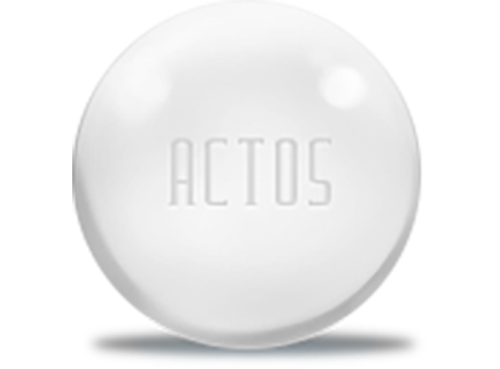Actos: Comprehensive Product Description
Drug Uses
Actos is an oral antidiabetic medication designed to help manage type 2 diabetes in adults over the age of 18. While it does not stimulate insulin production, it effectively reduces insulin resistance, allowing the body to use glucose more efficiently. Actos is typically prescribed as part of a comprehensive diabetes management plan that includes a balanced diet low in simple carbohydrates and regular physical activity. It can be used as monotherapy, providing an antihyperglycemic effect, or in combination with other diabetes medications such as Sulfonylurea, Metformin, or insulin to enhance blood sugar control. For patients newly diagnosed with type 2 diabetes, the recommended starting dose is either 15 mg or 30 mg per day, with adjustments made based on individual response and tolerability.
Dosage Adjustments and Special Considerations
In elderly patients or those with pre-existing heart conditions, the initial dose of Actos should be limited to 15 mg per day to minimize potential cardiovascular risks. Depending on the patient’s response and tolerance, the dosage may be gradually increased to a maximum of 45 mg daily. When combined with insulin therapy, particularly in older adults, careful monitoring is required to prevent complications such as fluid retention or heart failure. Regular blood glucose assessments and periodic liver function tests are recommended to ensure safe and effective long-term use of Actos.
Missed Dose
If a scheduled dose of Actos is missed, it should be taken as soon as possible. However, if it is already time for the next scheduled dose, the missed dose should be skipped. Doubling up on doses is not advised, as it may increase the risk of side effects without providing additional therapeutic benefits. Sticking to a consistent dosing schedule enhances the medication’s effectiveness in maintaining stable blood sugar levels.
More Information
Actos reaches a steady-state concentration in the bloodstream within the first week of treatment, meaning its full therapeutic benefits become more noticeable after several days of consistent use. During the initial phase of therapy, it is particularly important to minimize the intake of simple carbohydrates to support optimal glucose regulation. Adhering to the prescribed dosing schedule and maintaining a healthy lifestyle will help improve the long-term effectiveness of Actos in diabetes management.
Storage Instructions
Actos should be stored at a controlled room temperature of 25°C in a tightly closed container to protect it from moisture and direct sunlight. Keeping the medication in its original packaging and away from excessive heat helps preserve its stability and potency.
Actos Safety Information
Warnings and Precautions
Actos is intended for long-term blood sugar control and should be used cautiously when combined with other medications that affect glucose metabolism, such as Gemfibrozil. In cases where two or more glucose-lowering drugs are used together, dosage adjustments may be necessary to avoid excessive blood sugar reductions or other interactions. Patients with chronic medical conditions should undergo regular evaluations to assess the risks and benefits of continued Actos therapy. Individuals with mild to moderate heart disease may require lower doses, while those with severe liver impairment should discontinue the use of Actos due to the potential risk of liver dysfunction.
Disclaimer
The information provided in this Actos review is for educational purposes only and does not replace professional medical consultation. It is essential to speak with a healthcare provider before initiating, modifying, or discontinuing Actos therapy. The online pharmacy assumes no responsibility for any decisions made based on the information presented about this hypoglycemic drug.
Actos Side Effects
Common Side Effects
Most adverse effects associated with Actos are mild and transient, similar to those experienced with other oral antidiabetic agents. Approximately 4% of patients have discontinued Actos due to side effects. The most frequently reported issues include mild respiratory conditions such as sinusitis, muscle pain (myalgia), and throat inflammation (pharyngitis). Some individuals have also experienced headaches and visual disturbances, particularly within the first 20 weeks of treatment.
Long-Term Side Effects
Patients who have taken Actos for more than 24 months may be at an increased risk of developing cardiac complications, including congestive heart failure. Post-marketing data has shown that some patients developed heart failure while on Actos, even those without a prior history of heart disease. Due to this potential risk, individuals with existing heart conditions should be closely monitored throughout their treatment. If symptoms such as shortness of breath, swelling, or rapid weight gain occur, medical attention should be sought immediately.
Conclusion
Actos is a well-established treatment for type 2 diabetes, helping to improve insulin sensitivity and maintain stable blood glucose levels when used in combination with lifestyle modifications. While generally well-tolerated, it is crucial to follow medical advice regarding dosage adjustments and monitoring for potential side effects, particularly for patients with cardiovascular concerns. With proper use and regular health assessments, Actos can play a vital role in long-term diabetes management, reducing the risk of complications and improving overall metabolic health.










Reviews
There are no reviews yet.